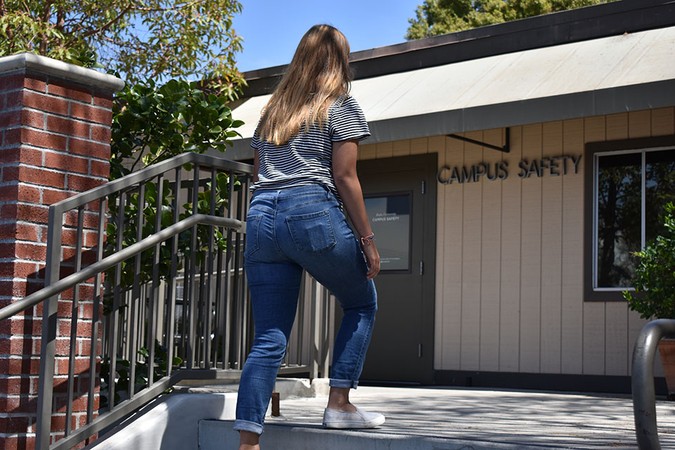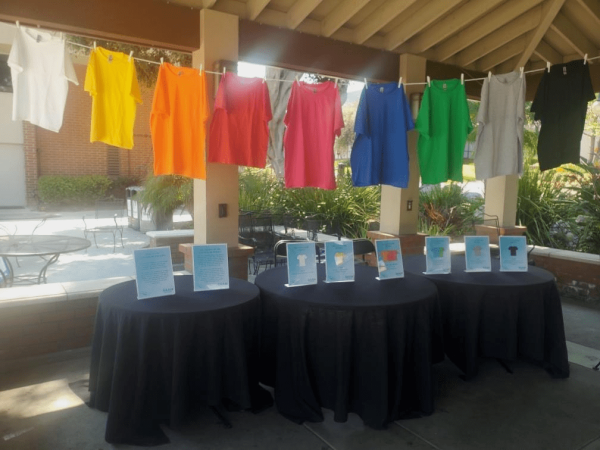Link between alcohol and sexual assault needs examination, departments say
Staff believe education about drinking remains important even on a dry campus.
April 25, 2018
THIS STORY IS PART THREE OF A THREE-PART SERIES ABOUT TITLE IX AT BIOLA. READ PART ONE OF THE SERIES HERE AND PART TWO HERE.
When alumnus Max Christensen took a sip of wine at home during his first year at Biola, he did not know he was breaking contract—or even that there was a contract to break. After learning about his mistake, he refrained from drinking for the next year, but drank a few more times after that.
“I don’t like the taste of [alcohol], but anytime I would be in a setting where either people were offering drinks or people were buying drinks, I would never say no,” Christensen said. “So, I would say most years I was at Biola, I broke contract, but never on campus.”
ALCOHOL AND SEXUAL ASSAULT
Christensen is not alone. Student Care knows some students break contract by drinking alcohol and seeks to support them in honoring the contract they committed to, according to director of Student Care Katie Powell.
But the presence of alcohol, which can affect judgement, alertness and communication, raises another concern: sexual assault. The National Institute of Justice says, “at least half of sexual assaults among college students occur after the perpetrator, the victim, or both consume alcohol.”
The Washington Post published an article in 2015 that found a correlation between alcohol use and sexual assault in several universities nationwide. The article highlighted the difficulty in determining responsibility when alcohol becomes involved, as alcohol can inhibit one’s ability to give consent.
Realizing this, Student Care, which offers emotional support to both parties during and after a Title IX investigation, does not discipline a complainant who was drinking during an incident, even if the Title IX adjudicators do not find the respondent responsible. The Title IX process itself reinforces that by including an amnesty clause which states a complainant will not undergo discipline for alcohol use.
Christensen acknowledges that overconsumption of alcohol can increase the chances of a sexual assault occurring, but believes the risk depends on the person. He says that some of his friends would pass out after having a drink and therefore could never commit sexual assault, while others would become more boisterous.
“It’s a percentage of the people who are at risk of losing their restraints when they drink,” Christensen said. “Within that percentage is another, smaller percentage of people who would go forward and commit sexual assault. It’s a very conditional thing.”
GOING OFF-CAMPUS
Director of Commuter Life Katie Tuttle encourages students to remain aware of alcohol’s effects, while also honoring Biola’s university standards by choosing not to drink. She also believes some students who move off campus may make the transition to take on more responsibility, yet others do so to escape those standards.
“I know that there’s alcohol abuse that goes on off campus, as well as, I’m sure, there are things involving cohabitation and other things that people decide are okay for them, because there’s less supervision,” Tuttle said.
STAFF AND STUDENTS EMPHASIZE EDUCATION
Powell believes educating students about the effects of alcohol remains important, especially since they might encounter students from universities which do not prohibit alcohol, but acknowledges a difficulty in doing so since contract expects students to abstain from drinking.
“Once students are out of Biola, they also need to come to an opinion on whether or not they will drink,” Powell said. “I think that we could educate our students on alcohol and substance use while still making it clear for this season in your life we’re asking you to abstain.”
Tuttle agrees and believes faculty could hold a panel offering their own experiences with alcohol use in order to teach students about its effects. She also encourages students to watch out for each other when alcohol becomes involved.
“If I had a friend, who was male or female, who I noticed was drinking and their behavior changed in such a way that they were taking risks, they were treating other people improperly… I feel obligated to call them on that,” Tuttle said.
Christensen also believes education about alcohol remains important, but also feels the issue includes contract itself.
“No one told me, ‘Oh you can’t do this, you cannot consume alcoholic beverages while in and outside of Biola during your time enrolled as a student.’ Didn’t hear about that,” Christensen said. “I think Biola could better educate students by explaining what contract is, why it has [a] contract and when alcohol, or drinking alcohol, is acceptable.”








